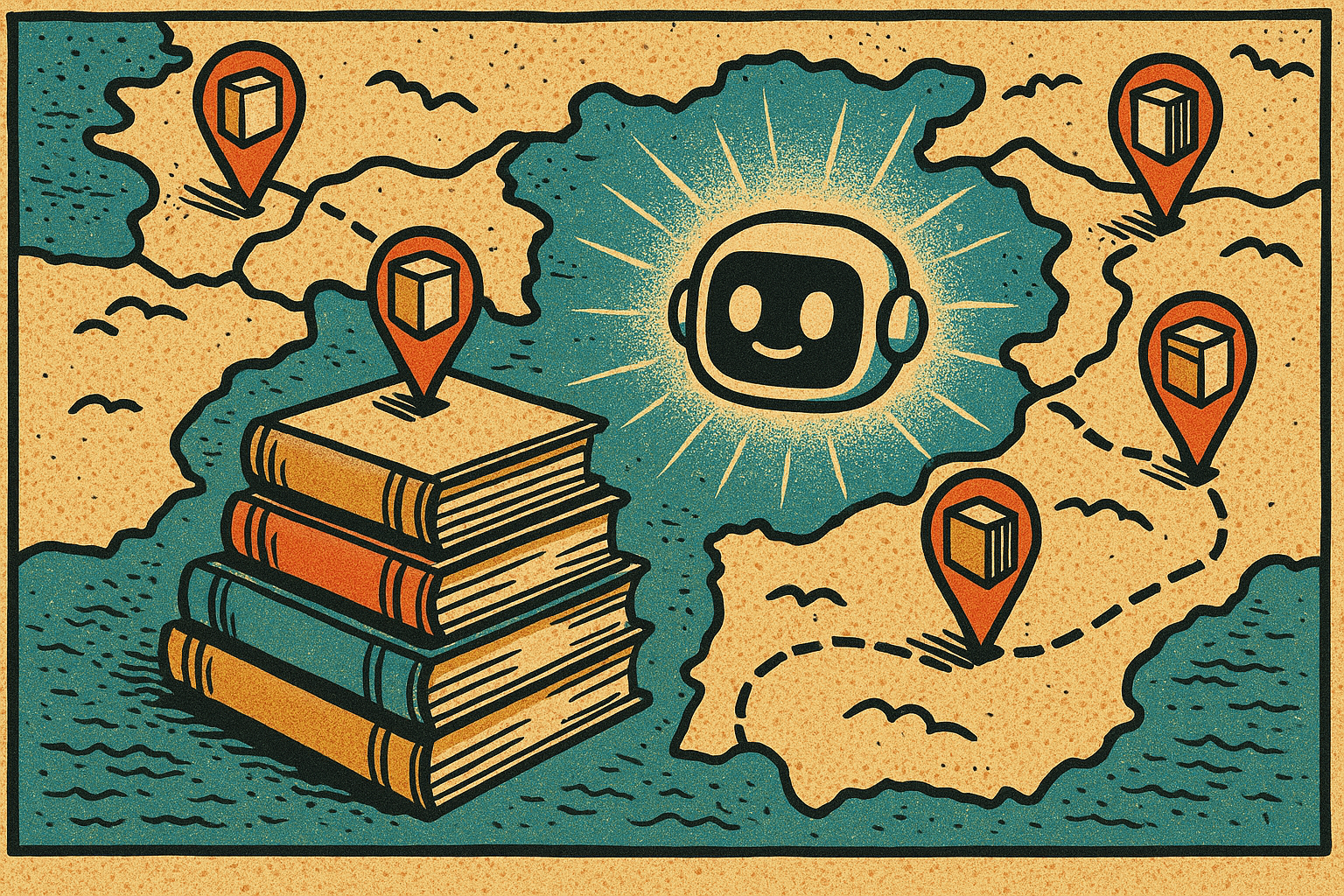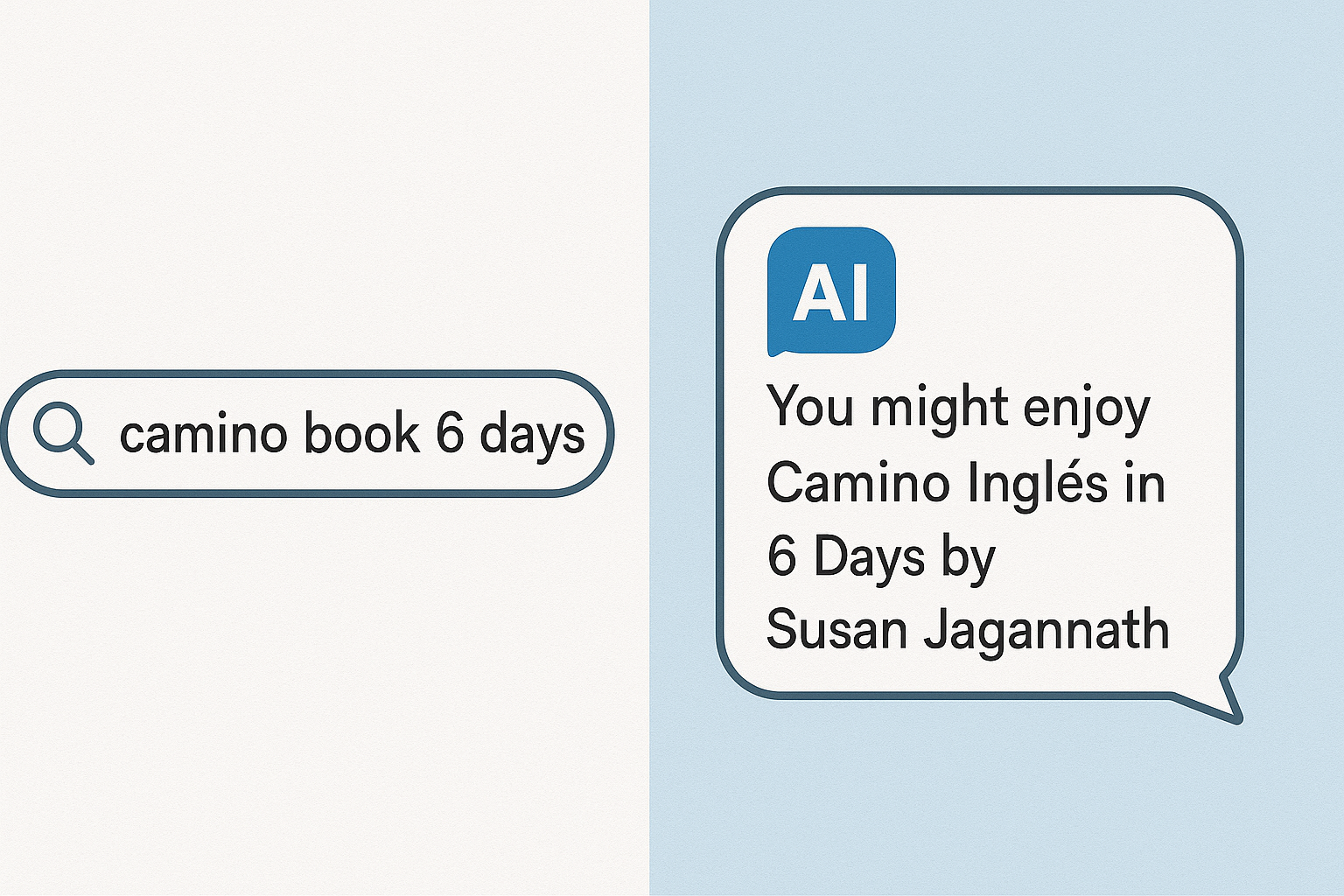Authors, love it or hate it, the AI-driven revolution is here—and it’s changing the game for book discoverability. It’s vital that we don’t get left behind. I watched a podcast where Joanna Penn hosted Thomas Umstattd Jr., CEO of AuthorMedia.com and host of the Novel Marketing Podcast to explore how generative AI is reshaping search—and what authors MUST do to stay visible in an increasingly algorithm-driven world.
I was fascinated by their compelling concept: Generative Engine Optimisation (GEO). This isn’t your usual SEO. Instead of focusing on traditional keywords and backlinks, GEO prepares you for discovery via AI tools like ChatGPT and generative search engines. I will put the link at the end of this summary, if you want to listen/read.
Why GEO and Not SEO?
- AI-Powered Shifts in Discovery
Traditional SEO catered to search engines like Google—but generative search tools now respond conversationally, using content context and even images to recommend books. At Google I/O, a demo showed users could snap a photo of a stack of books and receive intelligent, AI-generated book suggestions. - Bridging the Tech Gap
This AI search landscape isn’t always accessible to authors—few attend tech conferences or follow updates closely. Thomas embraces this gap, testing AI tools personally and sharing findings so authors can benefit without needing deep technical knowledge. - Practical AI Tools for Authors
Imagine uploading your manuscript and receiving a custom marketing strategy—complete with target audience insights and advertising angles. AI can generate this quickly, offering practical support for promotion, not just writing. We’ll keep writing it ourselves!
What you need to do as an author to harness GEO
It just means that people aka our readers are using AI to search for book they might like. Here are the core tactics we authors need to implement asap to get AI to recommend our books:
- Make our Author Websites LLM‑Friendly
Large Language Models (LLMs) thrive on contextual, structured content—so optimize your author website with clear, semantic formatting. - Leverage Goodreads for GEO
Goodreads remains valuable. Reviews, metadata, and reader lists enrich AI models, helping your book surface in relevant conversations. - Understand AI Model Capabilities
Different models—ChatGPT, Bard, Bing Chat—operate uniquely. Tailor your content to suit their strengths. - Prepare for AI Agents in Buying
With smart agents doing the searching, your metadata and web presence must be formatted for machine consumption. - Adopt a Forward-Thinking Mindset
The AI environment is fluid. The key to sustained visibility is staying curious, open, and ready to adapt. If one version of an LLM doesn’t work too well, go back and try the next version.
For key strategies and tactics, check out my next post, https://susanjagannath.com/practical-geo-strategies-for-authors-how-to-ensure-ai-shows-your-books-to-readers/
Takeaway
GEO isn’t a replacement for SEO—it’s the evolution. To thrive as an author, you need to shift from chasing keywords to building AI-ready content ecosystems. This includes:
- Structuring your web presence with clarity and metadata,
- Leaning into platforms like Goodreads,
- Creating content that AI tools can read, understand, and surface naturally.
By preparing for AI-driven discovery now, you position your work to be found—and recommended—in the future of search.
As promised here’s the link to the podcast.




